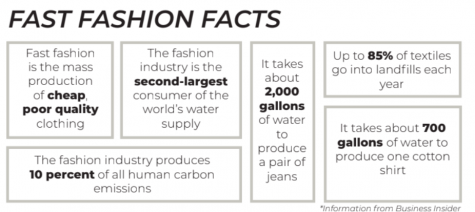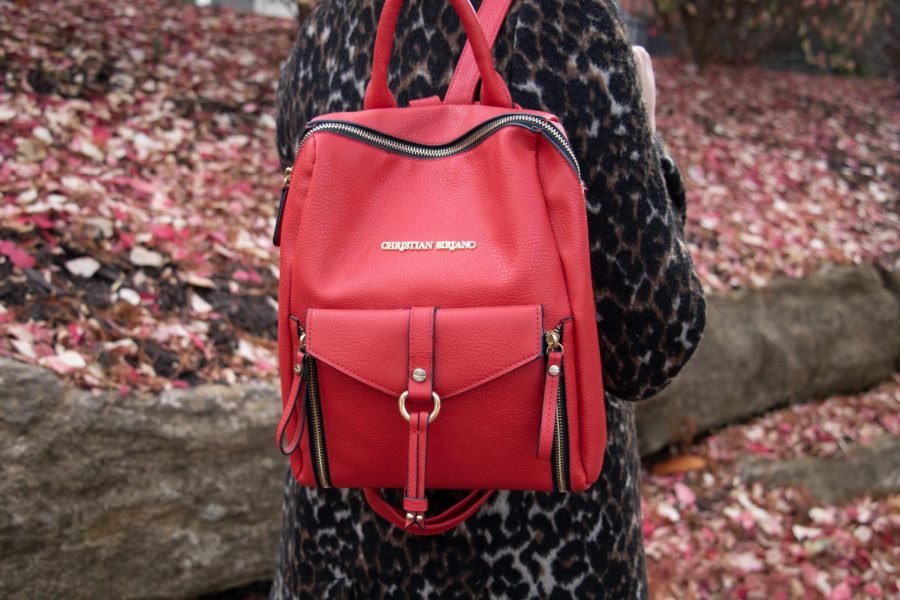Think Thrift
Due to the production techniques of fast fashion clothing brands, many students decide to thrift to support a better cause.
After looking for a backpack, Avery Feather said this one was the perfect fit. She found the bag at Plato’s Closet for $15.
December 14, 2020
After realizing the harm fast fashion brands cause the environment, senior Avery Feather said she became more conscientious of which clothing companies she was going to support.
“Originally I used to shop for a lot of fast fashion stores and it started really putting pressure on my ethical consciousness and my wallet,” Feather said. “I started to realize how expensive and bad it was for the environment, so I started to look into other options, and a big solution to that problem was thrifting.”
While going to her favorite thrift store like “Savers” and “Blessing Abound Thrift,” Feather said she only lets herself get up to three items in order to prevent buying unnecessary products that could take away from someone else who needs them.
“If you get carried away and buy things you won’t necessarily use, you end up wasting money in the long term,” Feather said. “You definitely shouldn’t be going to thrift stores to buy them out and take that resource away from people that really need it, but I think there is no harm in everyone in the community working and using things that deserve a second life.”
Along with Feather, senior Lauren McCarty said she is an active thrifter and believes that thrifting is a fun activity that also promotes a good cause.
“[Thrifting] is better for the environment and it also supports the thrift stores for people that need to shop there,” McCarty said. “Cheap online stores don’t always have the best quality and are not made in the most ethical way, so thrifting is much better.”
Avid fast fashion shopper, senior Hannah Walden, said she chooses to buy from these businesses since they have stylish and affordable prices. However, she disagrees with the means behind their production techniques.
“[Fast fashion brands] should have better rules and regulations to find a more ethical approach, even if that means increasing the price of the clothes,” Walden said.
Due to learning about the manufacturing process of fast fashion companies, Walden said she will look into a more ethical means of shopping, including thrifting.
With thrifting being his preferred way of shopping due to its sustainability, junior Jack Furstenau said he appreciates the cheap clothing and said it is a more effective way to express his style.
“When there is less production that goes into making clothing, [it makes] thrifting a lot more ethical, because you’re not supporting something that is hurting people,” Furstenau said.
In contrast to retail stores, Feather said she is always astounded by the wide selection and diversity thrift stores have.
“No matter what your taste, style or certain preferences of clothing are, thrift stores are able to apply to everyone, as opposed to other stores that may have a specific fashion, gender or style,” Feather said.
Due to the rapid release of new clothing in fast fashion, Feather said many people can get caught up in the fads and lose their appreciation for clothing sustainability.
“Thrifting helps us appreciate clothing more,” Feather said. “Fast fashion relies too heavily on trends as opposed to when you go to a thrift store, a lot of the things you find have withstood the test of time.”








